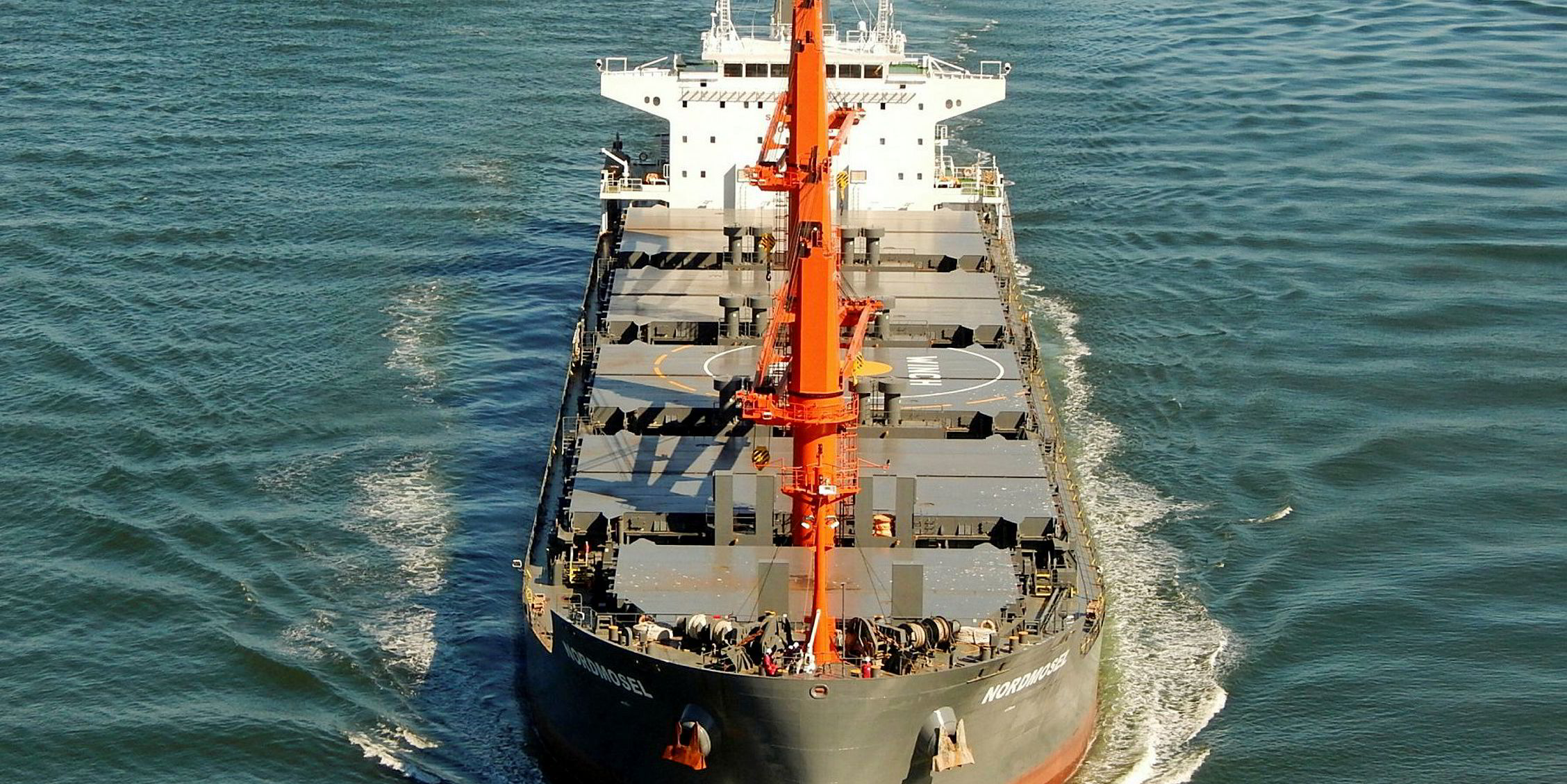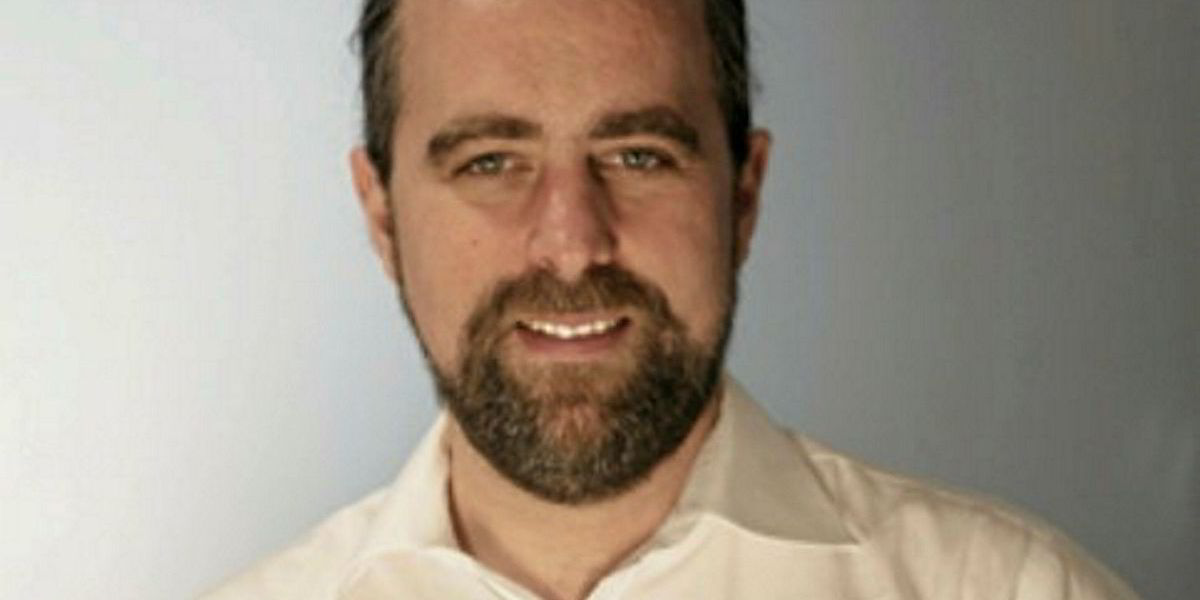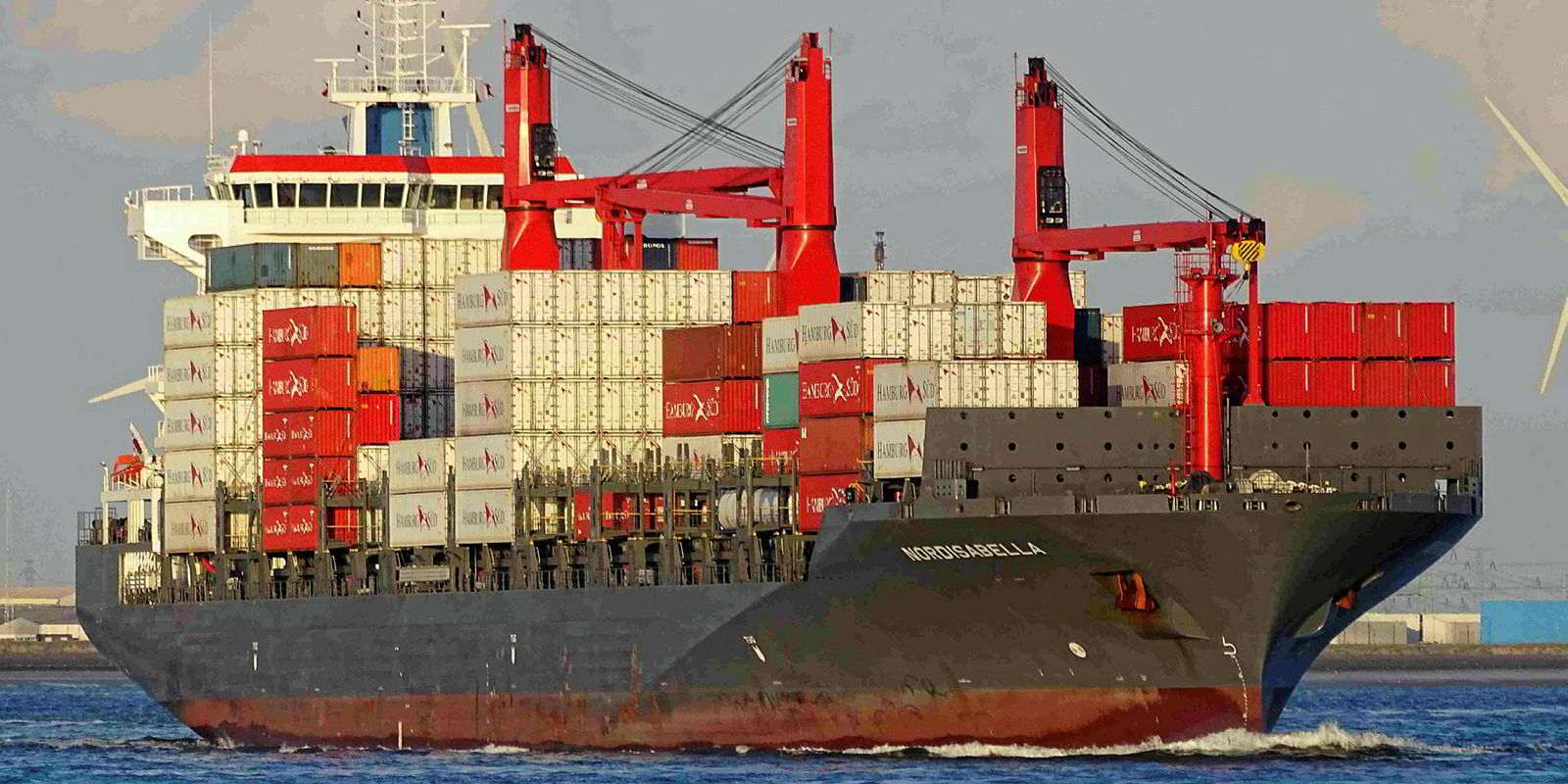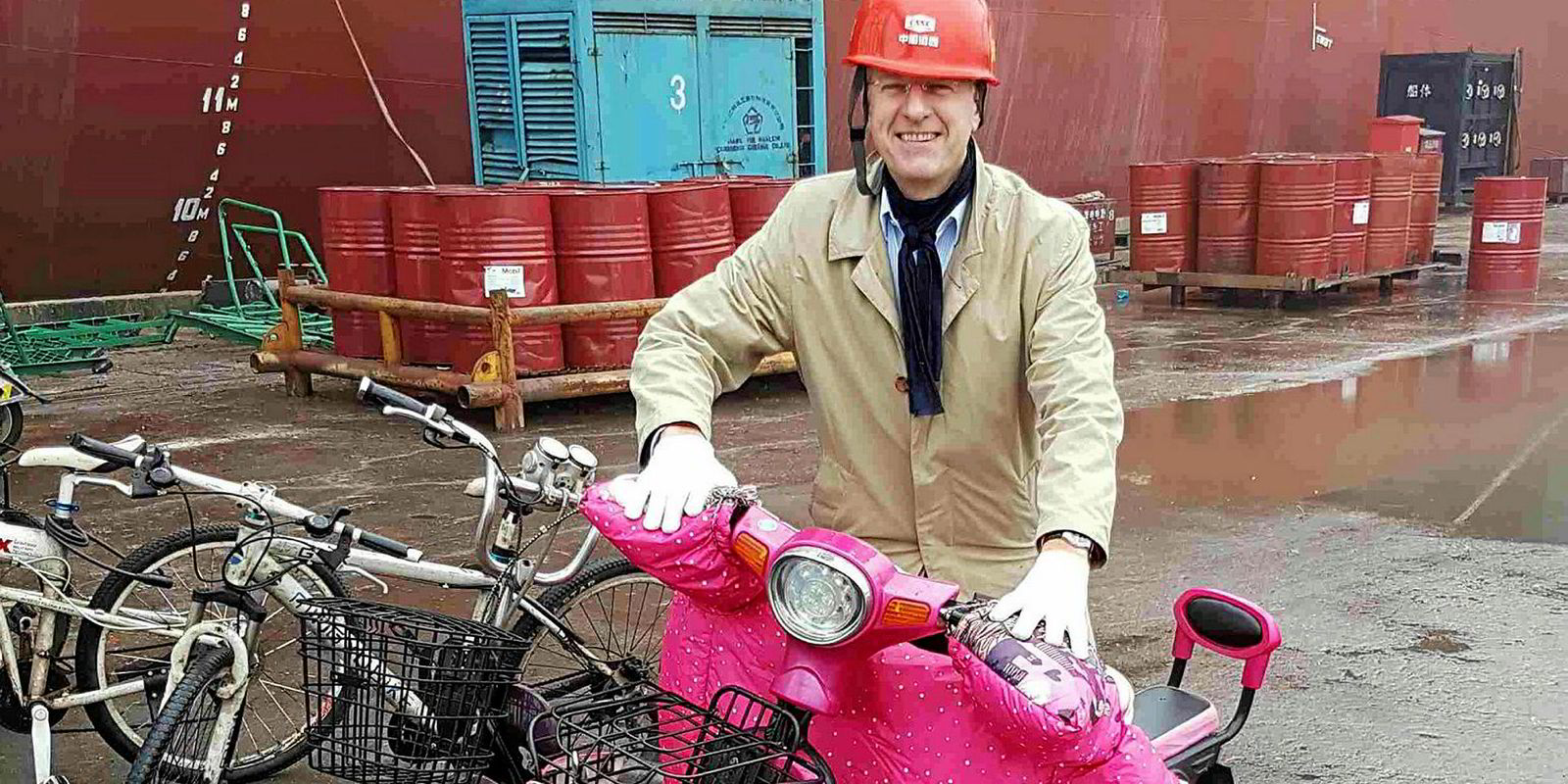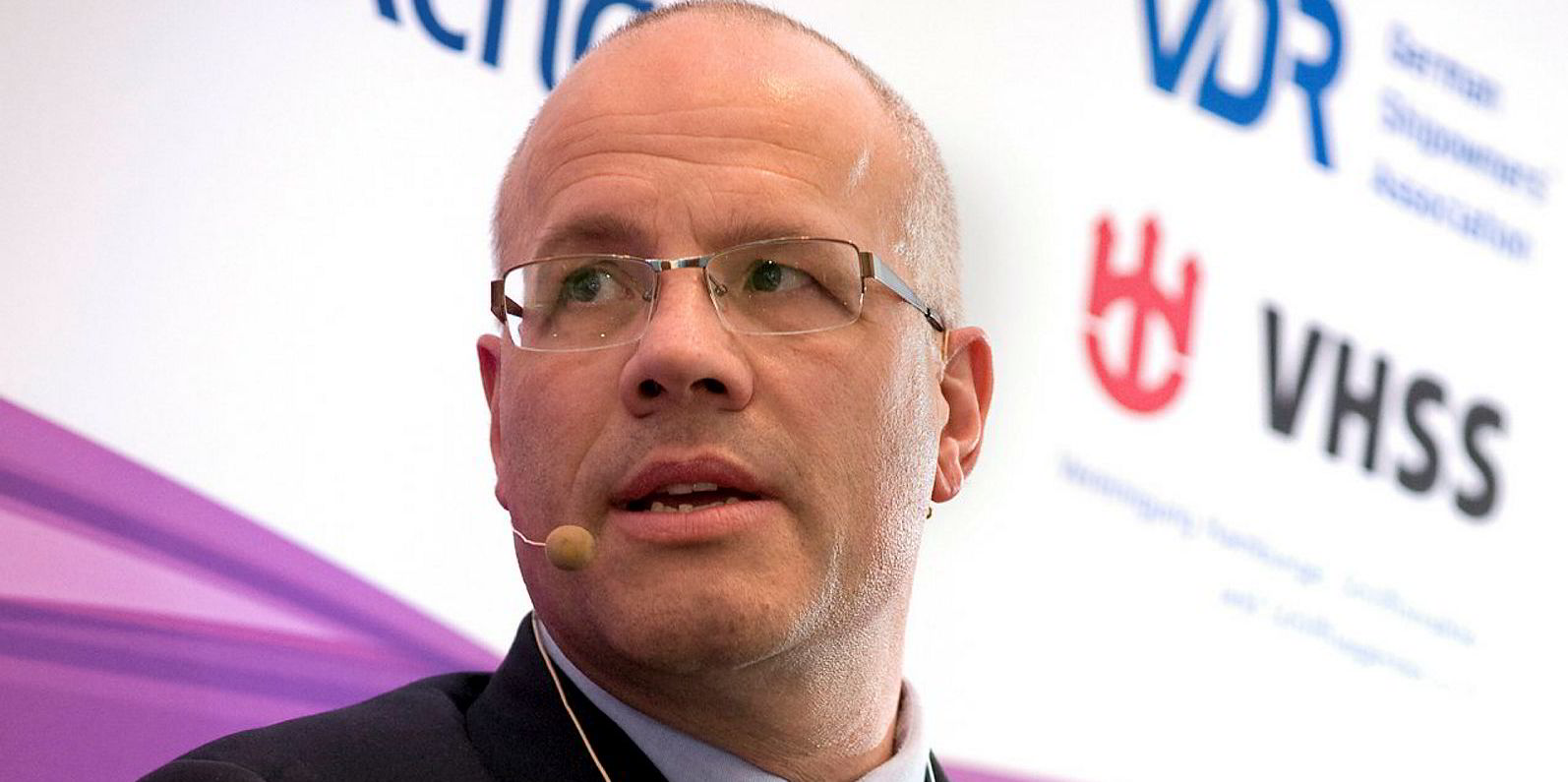When Klaus Oldendorff died in 2003, no one knew what lay ahead for his company that had grown from a single vessel in the 1960s to a fleet of three million dwt.
Today, Reederei Nord is seen as one of Germany’s most successful shipping outfits, with around 55 vessels spanning VLCCs, aframax tankers, chemical and product carriers, bulkers and containerships.
Not only is the fleet profile similar in ship type to when Klaus Oldendorff was at the helm, but so is the strategy.
That includes the late patriarch’s counter-cyclical investment mentality, which focuses on buying when the market is low and selling when it rises, using the profits to reinvest.
It is an approach that has also served well for his half brother — Henning Oldendorff — at Oldendorff Carriers.
Reederei Nord started investing again in 2011 and 2013, also at “very attractive prices”, says managing director Kurt Klemme. The programme covered 11 handysize bulkers, six aframax tankers, 16 containerships of 1,700 teu and eight of 2,500 teu.
Most of those newbuildings have been delivered, and subsequently Reederei Nord has been selectively selling to capitalise on stronger prices.

“We have already sold the first two of 2,600 teu [the Nordwelle and Nordwoge, built 2005 and 2006 respectively] and now we are basically harvesting,” Klemme says.
Market recovery means “suddenly we see positive cash flow coming into the dry fleet and the tanker fleet follows right now”.
Reederei Nord is currently turning its attention to seizing secondhand purchase opportunities, spanning handysize and ultramax bulkers, as well as MR and LR2 product tankers.
We have already sold the first two of 2,600 teu [the Nordwelle and Nordwoge, built 2005 and 2006 respectively] and now we are basically harvesting
Following the death of Klaus Oldendorff at the age of 69, ownership and control of the company ultimately passed to his twin sons, Christian and Nikolaus Oldendorff.
Nikolaus works alongside Klemme in managing the company from Hamburg, where the focus is on bulkers and containers.
Regular visits
Christian, who lives in Berlin and has his own company, Oldendorff Overseas Investments, focuses especially on internet start-ups and alternative investments, but joins in board meetings five times a year.
Tanker activities are based in Amsterdamunder the management of Keith Obeyesekera and Adriaan Rueppell.
Klemme recollects how his former boss, Klaus Oldendorff, refused to be cowered by the economic fallout from the 11 September terrorist attacks in the US in 2001.
Instead he said: “Let's buy now, we will be the only customers.”
The company's orders between 1999 and 2002 totalled six panamax bulkers, two VLCCs and four LR1s.
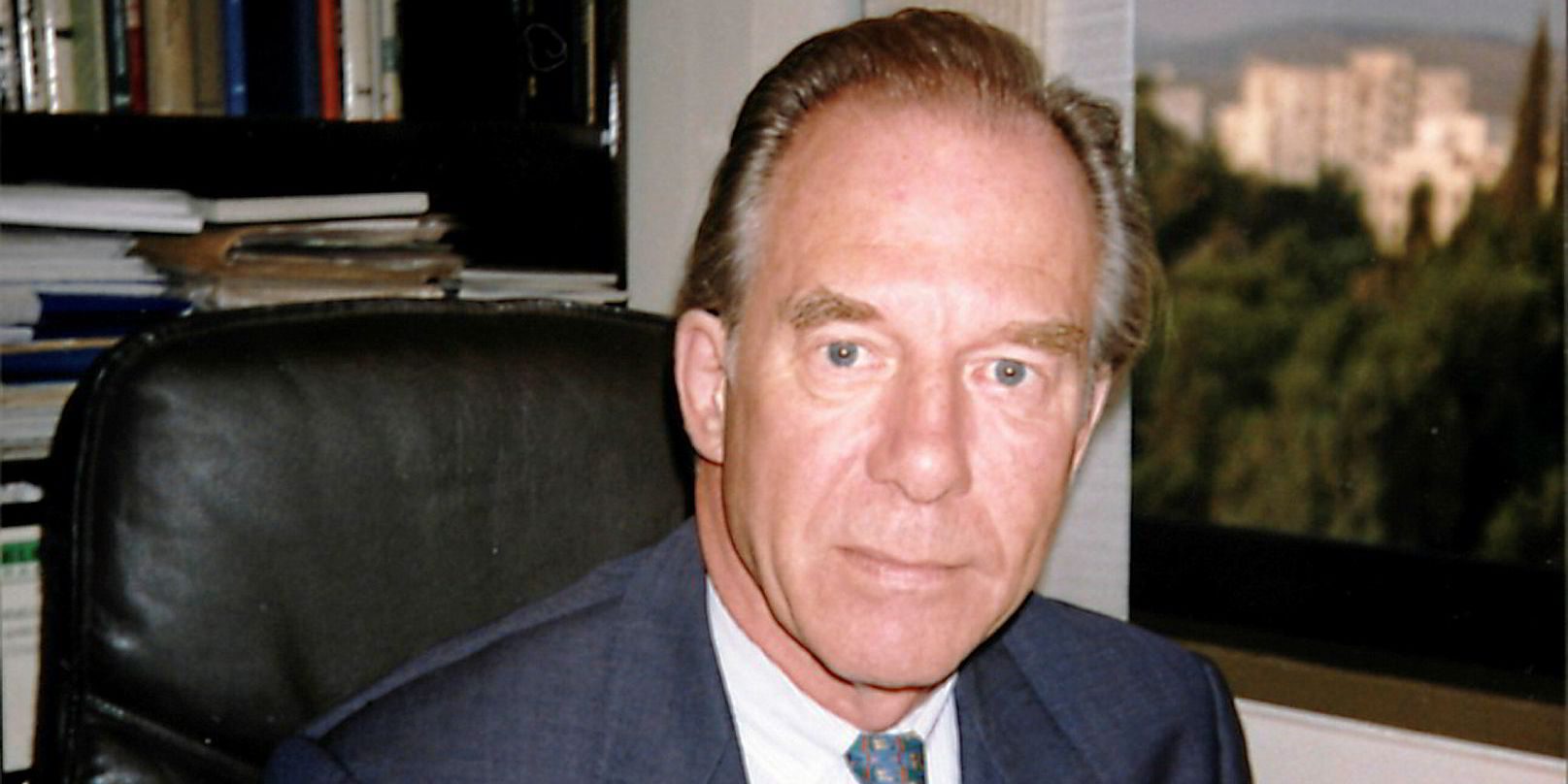
“Those were our best deals — good prices and very good on the technical side from Hyundai,” Klemme says.
“He [Klaus] had the age and experience but also the knowledge of shipping, ability to really live in the consumer world and read the markets. The perfect shipowner.”
His sons also keep a close eye on the markets but are typical, very objective third-generation owners, who view shipping like private equity companies — as an investment along with other assets to ensure the survival and wealth of the group.
'A need to diversify'
“Ultimately, you have to diversify,” Klemme says — a reference to the fact that real estate now forms a relevant part of the group’s investments.
The Oldendorffs have also ventured into agriculture because they needed somewhere to invest cash from selling tankers when the market was on a roll.
It is understood that much of that has involved buying at reasonable prices companies in the former East Germany, which, with restructuring, can be made profitable. But it is more of a “savings bank” investment because, although returns are low, Klemme says they are virtually guaranteed.
He [Klaus Oldendorff] had the age and experience but also the knowledge of shipping, ability to really live in the consumer world and read the markets. The perfect shipowner
Investment is also channelled into land in Portugal with holiday potential.
Klemme stresses that shipping remains an investment priority but no longer just the steel. Reederei Nord has also grown as a service provider, especially the commercial management of vessels.
When Klemme first met Klaus Oldendorff, he says it was typical to order a standard but technologically advanced and durable ship in Germany, Poland or Japan with a trading life of 30 years.
But times have moved on. The old business model of buying, trading and selling after 20-plus years at a nice price no longer works.
"You have to be quicker in and out, and broaden your organisation by offering services to third parties,” Klemme says.
But why have things changed?
Shipbuilding capacity grew massively because of China, while Klemme says “private equity and hedge funds sitting in front of their Bloomberg screens in New York” flooded the market with funds when they saw it rising.
“We had one of these hedge funds which said, ‘Let's do bulkers together'," he says. "We said, ‘Great, let's do 10 bulkers’. They said, ‘Can’t we do 100 because we have so much cash?’ But 100 would have destroyed the market.”
Priority on staff retention
Klemme says a priority at Reederei Nord is retaining skilled people. Hence, there is no appetite to suddenly sell half of the fleet because “what would we do with the people needed when we start reinvesting again?”
“This is why we have opened up the company offering all kinds of services,” he says.
But the intention on the shipmanagement side is not to challenge the likes of Wallem, V.Ships and Anglo-Eastern Univan — “where we can hardly compete with their pricing which doesn’t seem to cover costs” — but to provide commercial services such as Hanseatic Unity Chartering (HUC).
HUC, which started in 2015, is a joint platform involving Asiatic/Atlantic Lloyd, Borealis Maritime, Leonhardt & Blumberg and Bernhard Schulte Shipmanagement for the marketing and chartering of their container and dry bulk vessels.
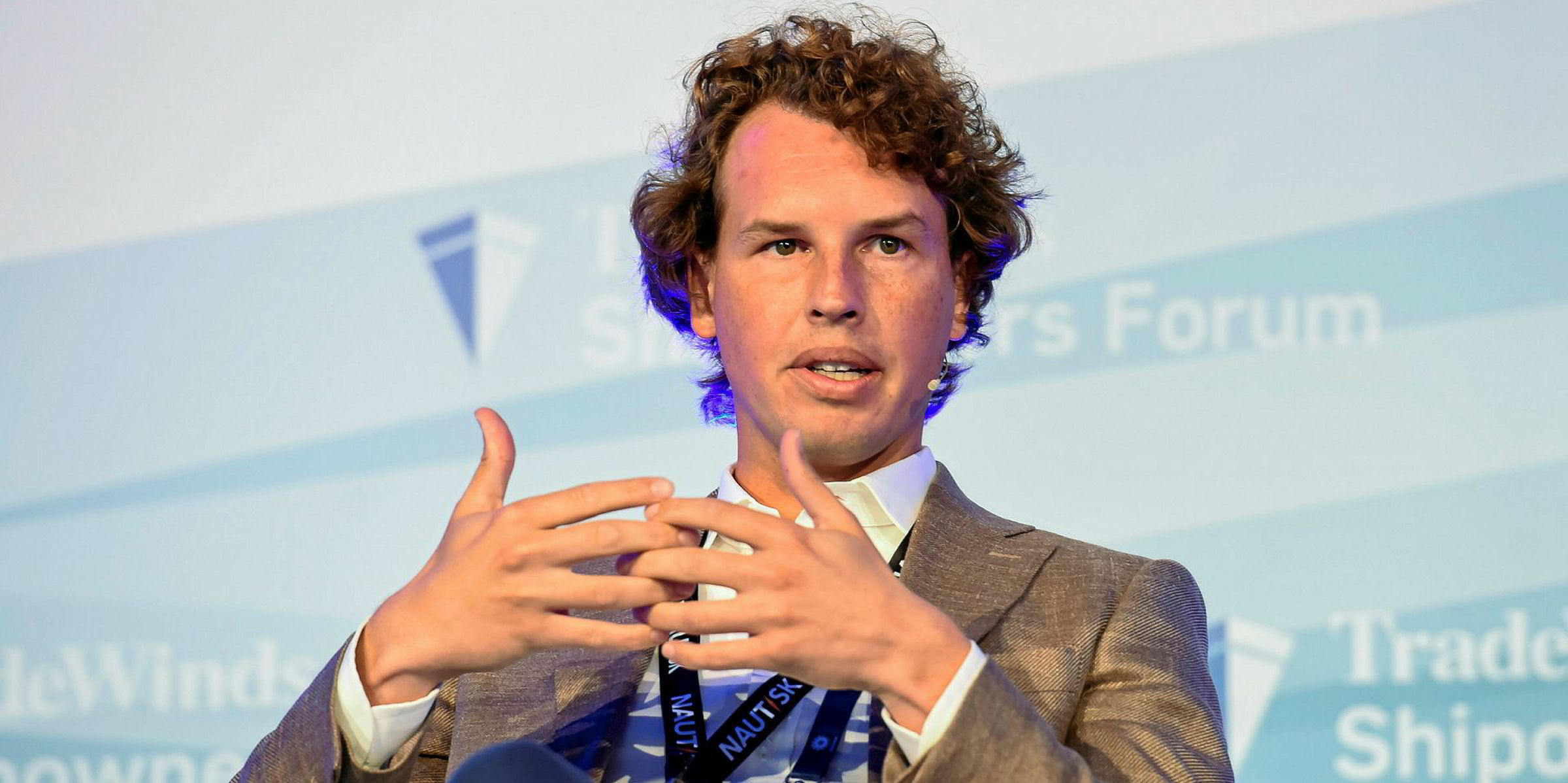
It commercially manages more than 210 containerships from 700 teu to 9,400 teu, and almost 30 bulkers from 33,000 dwt to 93,000 dwt, including some newbuildings.
Earlier this year, Reederei Nord teamed up with Peter Dohle Schiffahrts to set up the Hanseatic Unity Handysize Pool (HUHP), concentrating on what Reederei Nord describes as “a rigid focus on modern handysize bulker tonnage”.
Reederei Nord contributed 11 vessels and Peter Dohle another seven.
Joining of forces
Recently, Reederei Nord joined forces with Nissen Kaiun Co’s shipmanager — Synergy Marine of Singapore — to launch N2Tankers, overseeing a pool of Japanese-built crude aframax tankers.
Run from Amsterdam and Singapore, Reederei Nord has entered seven vessels, including five previously in Heidmar’s Sigma Tankers pool, while Nissen has put in four.
Klemme says it is hoped that further vessels will join from the “Western and Japanese systems — good owners with the same quality approach”.
But he adds that first the “chartering guys we have employed have to prove themselves and show how good their figures are”.
A 30-ship pool is regarded as probably the ideal size.
“We had been looking for a pool partner for a long time and had been ordering vessels in Japan at Sumitomo via Mitsui, and then Mitsui brought us together with Nissen,” Klemme says.
Nissen was also concerned about the high attrition rate among pools and, like Reederei Nord, wanted something longer lasting: a Tankers International-style owners’ pool with cost sharing.
